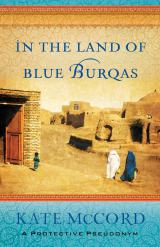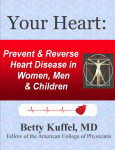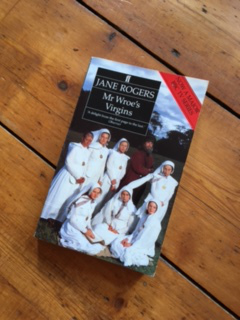 In the Land of the Blue Burqas by Kate McCord gives a fascinating insight into the people of Afghanistan, particularly the women, and how Islam affects their lives and relationships.
In the Land of the Blue Burqas by Kate McCord gives a fascinating insight into the people of Afghanistan, particularly the women, and how Islam affects their lives and relationships.
While Islam and Christianity embrace very different views of God, McCord makes use of a few common areas of belief to build a bridge to share the gospel.
McCord writes of how “Afghans almost universally believe in the concept of kismet, fate. Whatever happens happens because Allah wills it, no matter whose hand has accomplished the thing”.
She addresses this with a group of Afghan women while discussing a deadly car bombing in Kabul that destroyed a bus and killed many including a young mother:
“God told us not to kill. We cannot disobey God in the name of God. That is a lie. God told us to love Him with all our hearts, all our minds, and all our strength. Then He told us to love our neighbours. If a man kills his neighbour, he is disobeying God. This man who blew up the bus and killed that mother did not do the will of God. He did the work of Satan. God will judge him”
One woman in the room responded by sharing another story.
“Our town was at peace. We didn’t know war. We were happy. One day my cousins and aunts were gathered in the house preparing [food] for a wedding party. A bomb fell. We found pieces of dough, bundles of meat, hair ties, scarves, and scraps of bloody fabric. Even the part of the ceiling that didn’t fall was covered with blood and pieces of bodies”
… we all looked at the swirling red carpet . Each woman muttered “Tobah” repent.
After a long pause I restated what I absolutely believe to be the truth: “That was not the will of God, either”
“No,” the women agreed. “That is not the will of God.”
McCord gives the Christian reader a lot of food for thought.
She writes:
“For many Westerners, the question of who God is and what He wants for and from us is simply not relevant. We are, after all, wealthy and busy. For Afghans, it may be the most important question of all.”
And she confesses to something that I think affects most western Christians to one degree or another:
“Sometimes I forget to differentiate between what I believe as an American woman and what I believe the Bible teaches. America is my culture, and Jesus is my Saviour and Lord. Sometimes it’s hard to untangle the two. Afghans challenged me to try.
McCord compares various aspects of her Christians beliefs with those of her Afghan neighbours to show how the vastly different cultural beliefs affect Afghan views of God and as a result their society.
One example she describes is the Afghan view of temptation and sin.
I learned that in Afghanistan, the influences that cause or encourage a person to do what the society defines as wrong are the real sin, not the person who actually does the wrong. People are weak and must be protected. The society provides that protection. Any influence that tempts a member of the community must be eradicated, silenced, or walled out.
McCord also found that her time in Afghanistan gave her a new perspective on some very familiar parts of scripture.
Afghans helped me understand the teachings of Jesus more completely. The culture of Afghanistan today is much more similar to the first century Judea of Jesus’ day than my own Western culture is…
As an example of this, she writes:
I was often amazed when an Afghan heard a Jesus story for the first time and then told me what it means. Jesus spoke to a woman at a well, a woman who had had several husbands and was not married to her current partner. My Afghan women friends immediately saw the woman’s shame. No woman in Afghanistan can arrange her own marriage. The woman at the well had been used by five men, and the last didn’t even have the decency to marry her.
I found the book to be a an effective eye-opener, not only to an unbelievably foreign culture and religion, but also to the unbelievably naïve view that Western Christians have developed concerning the life and teachings of Jesus and how we’ve been taught to view them.
Advertisements Share this:




